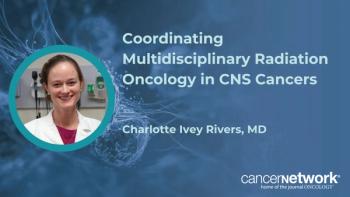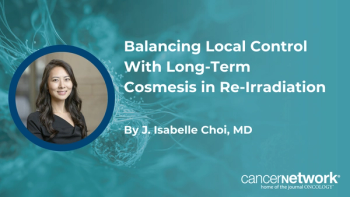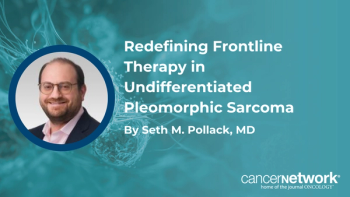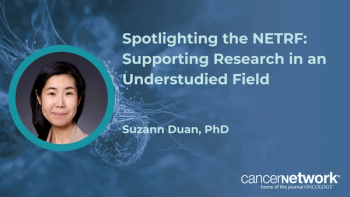
Motixafortide Reaches Primary End Point of Improved Stem Cell Mobilization in Multiple Myeloma Trial
Statistical significance was reached across all end points of the phase 3 GENESIS trial investigating granulocyte colony stimulating factor plus either motixafortide or placebo in patients with multiple myeloma receiving autologous bone marrow transplantation.
Results from the phase 3 GENESIS trial (NCT03246529) of motixafortide in combination with granulocyte colony-stimulating factor (G-CSF) as therapy for hematopoietic stem cell mobilization for autologous bone marrow transplantation in multiple myeloma met all primary and secondary end points, according to the company responsible for the agent, BioLineRx Ltd.1
In the intention-to-treat population (n = 122), there was high statistical significance for cell mobilization after apheresis of therapy favoring motixafortide versus placebo plus G-CSF.
“These strikingly positive data significantly exceeded our expectations, and are truly transformational for our company,” Philip Serlin, Chief Executive Officer of BioLineRx, said in a press release. “The statistical significance across all primary and secondary endpoints was consistent across twelve different sensitivity analyses. These results support our goal of becoming the standard of care for autologous bone-marrow transplantation, providing a strong clinical and pharmaco-economic advantage for its use, on top of G-CSF, in all transplant procedures.”
The primary end point was the proportion of patients with mobilization of at least 6.0 x 106 CD34+ cells/kg with up to 2 apheresis sessions, which was increased 4.9-fold with the experimental (70.0%) versus the control regimen (14.3%), for a difference of 54.6% (95% CI, 39.7%-69.5%; P <.0001). This translated to an odds ratio of 12.9.
The study’s main secondary end point of patients with mobilization of at least 6.0 x 106 CD34+ cells/kg with after just 1 apheresis session was also shown to be improved with motixafortide at 67.5% versus 4.8% with placebo, for a difference of 61.7% (95% CI, 49.5%-73.8%; P <.0001). The 14.1-fold increase for this outcome measure translated to an odds ratio of 56.0.
The median number of CD34+ cells collected on the first day of apheresis was increased 5.6-fold with motixafortide at 8.5 million cells versus just 1.5 million with placebo. The motixafortide combination allowed for 88.3% of patients on this arm to go on to receive transplants as opposed to 10.8% in the placebo arm, equating to an 8.2-fold increase.
“The results of the GENESIS study are extremely impressive, and all the more so when considering that almost 90% of the patients in the treatment arm proceeded to transplantation after only one apheresis session,” John DiPersio, MD, Washington University School of Medicine, and lead investigator of the study, said in a press release. “This is a great achievement in alleviating the burden for the patients and reducing hospital resources. I believe these results make the combination of Motixafortide and G-CSF a very attractive candidate for use in all patients with multiple myeloma undergoing autologous stem-cell transplantation.”
According to representatives at BioLineRx Ltd, the company will seek regulatory approval for the agent in this setting, with plans to submit a new drug application early next year. In addition, there are plans for motixafortide in other stem cell mobilization indications.
Previously, the FDA had granted orphan drug designation to motixafortide for the treatment of pancreatic cancer, acute myeloid leukemia, and stem cell mobilization.2
References
1. BioLineRx Announces Positive Top-Line Results from GENESIS Phase 3 Trial of Motixafortide in Stem-Cell Mobilization for Autologous Bone Marrow Transplantation in Multiple Myeloma Patients. News release. BioLineRxLtd. May 4, 2021. Accessed May 4, 2021. https://bit.ly/3eReHSp
2. Inxight: Drugs, Motixafortide. National Center for Advancing Translational Sciences. Accessed May 4, 2021. https://bit.ly/3hevXnJ
Newsletter
Stay up to date on recent advances in the multidisciplinary approach to cancer.












































